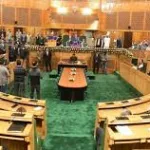In many traditional societies, especially those with strong cultural or religious values, the parent-child relationship is regarded as sacred and inviolable. Parents are often seen as inherently wise and well-intentioned, acting only for the betterment of their children. As a result, when disputes arise, it is not uncommon for children to be blamed for causing discord. They are frequently labeled as disobedient, disrespectful, or even immoral, while parents are portrayed as victims of ungrateful behavior. But is this simplistic view justified? Are children always at fault, or does this mindset overlook important nuances in the parent-child dynamic?
Many people while discussing social values in the context of parent-child relationship automatically blame children in cases of parent-child conflicts, questioning why children are frequently labeled as disobedient, rude, or immoral without a thorough understanding of the situation. While parental decisions are usually sincere and made with good intentions, that does not necessarily mean they are always right. It is crucial to recognize the difference between being sincere and being correct. Parental authority does not grant infallibility, nor does it imply that children are always in the wrong. A closer examination of this issue, informed by cultural, psychological, and religious perspectives, reveals that the reality is far more complex.
Cultural Expectations and Bias
Cultural norms, especially in traditional and patriarchal communities, shape societal views on parent-child disputes by emphasizing unconditional respect and obedience to parents. The focus on parental sacrifices creates an expectation for children to comply without question, leading to the perception that any disagreement from the child signals poor character or rebellion rather than a legitimate expression of personal needs or differing perspectives, personal needs or differing viewpoints.
This one-sided perspective is problematic as it overlooks that parents can also experience bias, stress, and emotional struggles, impacting their decisions. Sometimes, parental behavior may be controlling, restrictive, or in some cases even abusive, yet cultural norms tend to assume parents are always right due to their age and experience. When children express distress or protest, they often face accusations of being ungrateful or disrespectful.
Psychological Impact on Children
The social stigma against children who disagree with their parents can seriously harm their mental health, leading to low self-esteem, feelings of worthlessness, depression, or anxiety. In extreme cases, particularly with emotionally abusive or authoritative parents, some children may feel trapped and powerless, potentially leading to self-harm or substance abuse. Pressure to conform to parental expectations, along with a lack of support for self-expression, can lead children to feel inherently flawed. This is particularly evident in families where parents impose their ambitions and fears, dictating choices without regard for the child’s individuality. As a result, children’s voices are silenced, and their needs and aspirations are ignored, creating a toxic environment that hinders personal growth.
Is Parental Authority Absolute in Islamic Teachings?
The Quran and Hadith emphasize the importance of respecting and honoring one’s parents, but they do not advocate blind obedience in all circumstances like where parents ask children to leave faith or its tenants. In fact, Islam encourages a balanced approach where both parties are expected to uphold certain ethical standards. For example, the Quran states: “And We have enjoined upon man [care] for his parents. His mother carried him, [increasing her] in weakness upon weakness, and his weaning is in two years. Be grateful to Me and to your parents; to Me is the [final] destination. But if they endeavor to make you associate with Me that of which you have no knowledge, do not obey them but accompany them in [this] world with appropriate kindness” (Quran, 31:14-15).
This verse shows that while honoring parents is an important value, it does not extend to situations where parents demand something that goes against Islamic principles or the well-being of the child. Moreover, the Prophet Muhammad (PBUH) advised against harshness and injustice. In one Hadith, the Prophet (PBUH) is reported to have said, “Indeed, your children have rights over you” (Sahih Muslim). This Hadith indicates that parents have a responsibility to treat their children fairly and justly. It is not permissible for parents to abuse their authority or ignore the needs and feelings of their children. Islam emphasizes justice, kindness, and mutual respect in family relationships, rather than an authoritarian approach.
The Misconception of “Parental Infallibility”
A key misconception is the belief that parents are infallible due to their role. While most act out of love and concern, they are humans and can make mistakes. They may impose unrealistic expectations, act out of fear, or replicate unhealthy behaviors learned from their own parents, without considering their appropriateness for their children.
The belief that parents are always right can prevent children from expressing their feelings, seeking autonomy, or voicing disagreements, fostering resentment and alienation that may lead to strained relationships into adulthood. Inflexible or authoritarian parenting can hinder children’s critical thinking and assertiveness, conditioning them to accept authority unquestioningly. This undermines their development as independent individuals. It’s crucial to challenge the notion of unquestionable parental authority and acknowledge that healthy family dynamics rely on open communication and mutual respect.
Sincere vs. Right Decisions: The Need for Balance
The difference between sincerity and correctness is essential for grasping the dynamics of the parent-child relationship. A decision made with good intentions does not necessarily mean it is the best choice for the child. For example, parents might genuinely think that a specific career path is ideal for their child, while the child may have different interests or dreams. Forcing the child to conform to the parents’ expectations can result in feelings of dissatisfaction and regret later in life. Effective parenting requires listening to the child’s voice and considering their individual needs, talents, and preferences. While parents provide guidance, children should be encouraged to make their own choices and learn from their experiences. It is through this balance of support and autonomy that children develop confidence and decision-making skills
Moving Towards a More Balanced Approach
To tackle the notion of unfair blame placed on children in parent-child disputes, a cultural shift towards understanding and empathy is essential. It’s important to recognize that although parents usually act out of love, their actions are subject to critique. At the same time, we parents must move forward with time. Children should have the freedom to share their thoughts and feelings without the fear of being labeled as disrespectful or ungrateful.
The practice of always siding with parents in disputes with their children is an oversimplified approach that does not consider the complexities of human relationships. It is essential to recognize that while parents’ decisions are often made with the best intentions, the parent-child relationship should be built on a foundation of mutual respect, open communication, and understanding. Addressing this issue requires a cultural shift that values the voices and experiences of children, recognizing that they too have rights, emotions and should be treated with fairness.
By fostering a more balanced approach, society can support healthier and more fulfilling family dynamics that benefit both parents and children alike. Allah (SWT) says not even say “Uff” to your parents and in the Arabic language, “Uff” is the slightest method of expressing irritation. There’s nothing that is less trivial than “Uff”. So, Allah (SWT) says, once your parents reach old age, don’t even show them that you are the slightest bit irritated. As per religion, the balance between parental advice and childrens futuristic aspirations or insights needs to be realized in religious and compassionate understanding.
(Author besides being a Medical doctor at Mubarak hospital is active in positive perception management of various moral and social issues. He can be reached at [email protected])








